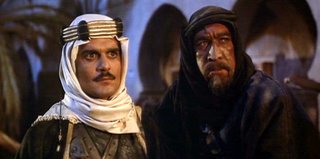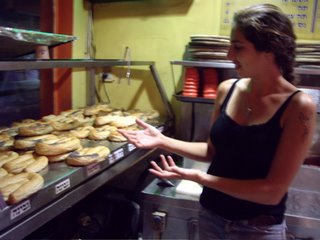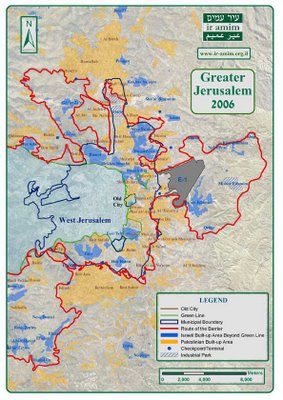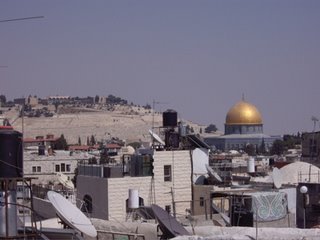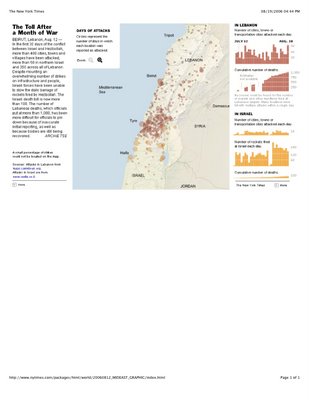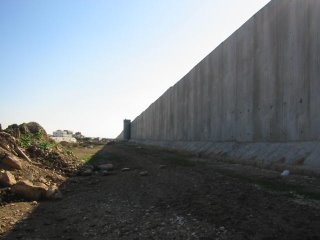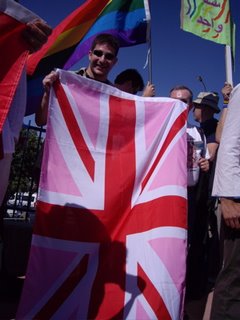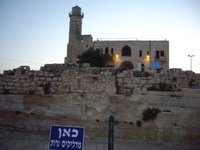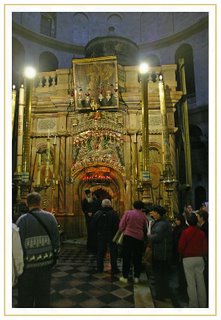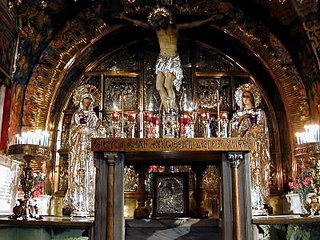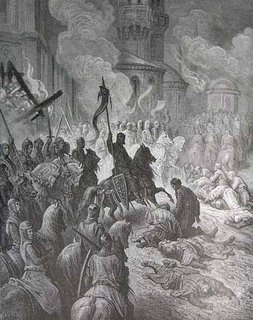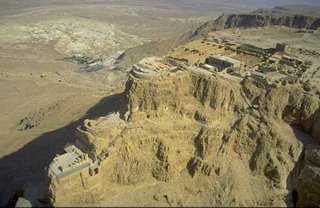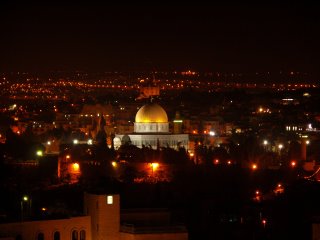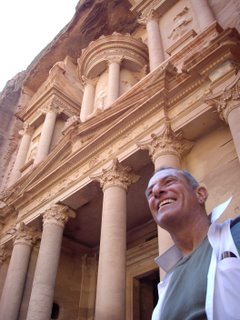Mark’s final Thought Tidbits about the trip
Would I give up my life’s accomplishments, my home in Bernal Heights, my sense of security if I was told that this would lead to peace and justice for the Native Americans whose expropriated land I sit on, or maybe also the Mexican population slowly being displaced from the Mission? I’m glad I don’t feel any real pressure to make that kind of decision. It is not as if I am in “Beetlejuice” and discover that my housing development’s built on a graveyard whose inhabitants below are all like Michael Keaton’s out-of-control manic title character. At least I hope not. It is also worth mentioning here that many Jews and Palestinian Arabs outside Israel in our own diasporas, educated away from the crazed confines of that Middle Eastern semitic tinder box, have an easier time imagining peace.
I believe that most Palestinians really want peace, and would eventually be willing to live next to Israel, but only once they have their own real and viable country where they can co-exist in a state of security and with honor. I cannot speak for what my cousin believes, and did not directly ask him this question. But Israelis in general need no reminders (given the busses blown up, bombs falling daily across the northern border, and the vows to destroy them verbalized regularly from Iran to Ramallah) that they live in a region that hates them as Jews. And even if they made peace with some Palestinians, others would not be happy until all the Middle East was fundamental Islamist. And then all the world.
Meanwhile the Occupation of another people has its insidious effect on us, an untreated chancre on the Jewish soul. It not only isolates Israelis in the political world, but does its invidious work on the rest of us in the Diaspora as well. Bombings of synagogues in the Pacific Northwest and anti-Semitic killings in France; unholy alliances with Protestant groups who look forward to The Rapture and want Jerusalem in flames as His precursor, or new recruits for Islamist terror activities among middle-class Pakistani kids in Great Britain; Jewish neo-con support for a stupid US president’s disastrous misadventure in Iraq: all these are ways that the Palestinian Occupation poisons us in the world at large.
I am reminded of a story by Ursula K. LeGuin, the feminist Anthropology/Science Fiction writer—“The Ones Who Walk Away From Omelas.” Did you read it in high school? It is a beautiful allegory about an ideal land, free from jealousy or sin or oppression…except for one small secret in a basement room. Highly recommended:
http://teacherweb.ftl.pinecrest.edu/crawfor/apcg/Unit1Omelas.htm. We may or may not be “those who walk away” but I cannot be someone who pretends ignorance.
On the other hand, I don’t really need to go back to Israel. Twice in 25 years may just have been enough. The first time I went as a young man and got captivated by the vibrant peace movement and seduced by the mixed-fruit cornucopia of gorgeous Jews I met. These included a six-foot two Moroccan punk-rocker boy with painted fingernails and a girlfriend who left early, an early gay activist with the name of a king of Israel, a butch Mizrachi soldier and dope seller who kept me in his bedroom while doing armed deals with people in the living room, who believed he had a girl inside. I was that girl inside!
This trip Ken and I met an equally amazing slew of Israelis of various backgrounds. Two young guys who kept watching us work out at the YMCA gym, but barely responded when we tried to talk to them. (Later we realized that they were Palestinian Israelis and may not have trusted either us, or their own English.) Gorgeous, lively and fearless young women wherever we were, of every sexual orientation. David Ehrlich, a novelist and pal of our fairy friend Wally, who single-handedly started and maintains the best bookstore in Jerusalem, the one favored by both the gay community and by hip Orthodox Jews. Two kids we met at the bar, one a rail-thin belly dancer with frosted spiked hair who was not Arab but Armenian Christian, and one a smiley gap-toothed observant Jew in tsitisis flirting and dancing with every young one he could, whose parents had no idea. High school kids blond Sean and his two girl friends (a couple) from Ashkelon, which they described as a deadly dull small town, proudly waving their rainbow flag at a gay rally.
There have been some notable changes, but mostly in degree. The amazing breakfast buffet I recalled from a visit to a kibbutz, with dozens of middle eastern salads, European smoked and pickled fish, piles of fresh fruits and juices and horns-o-plenty of breads still exist, but now we found them in the expensive hotels our tour placed us in. Israelis eat more and more as easterners, Levantines, near Orientals. They still eat pastries that resemble Coney Island knishes and blintzes, but nary a shtickl gefilte fish or some kishka.
Bagels are now rarer than the larger Arabic sesame bread rings eaten with zatar spice. Linguistically, also, and theologically in an absent-minded sort of way, the two related groups circle each other. Hebrew-speaking Arabs will use the phrase “Baruch ha Shem” whose ubiquitous meaning is Thank God, but literally means Blessed be His Name. Israelis barely notice they’re using Arabic when they now say “In’shallah --if God wills.
I also got a first-hand insight into the “internalized oppression” that very possibly affects everybody in Israel. True, Jews came there to stop being victims. It was “Never again!” to the Holocaust, to walking to one’s death, to being the pitiful bent-necked ghettoized zhlub, to moving away from a neighborhood because it was “going schvartze” (for more, read Jeffrey Goldberg’s amazing chronicle Prisoners: A Muslim & a Jew Across the Middle East Divide coming out in October from Knopf). But there is a new, a modern Israeli form of feeling inadequate that is just as harmful. I first felt it 24 years ago in the ultra-orthodox Jerusalem neighborhood, Mea She’arim.
I was walking there on my own, middle of the week, when one of these adorable shaved-head-with-payes little kids in a playground asked me for a photo. That is what I thought they wanted, though it turns out they may have been asking in Hebrew for money. When I took out my camera, a white-bearded rabbi type came out of the school’s building and told me in mixed Yinglish/Hebrew that it is forbidden for non-Jews to take pictures here. Excuse me, I answered, but I am Jewish. “Oh really? Then where is your yarmulke? And your tsitsis?” In all my life I had never before been accused of NOT being Jewish; trying to deal with a growing sense of outrage and humiliation I asked him, “If I wore those, wouldn’t you ask what about my payes? Or black coat?” I could have carried the argument further, wondering if then he would have insisted that I must be a member of his, the only true Yeshiva or school of ultra-orthodoxy. By now a crowd was beginning to gather, to see what tourist dared argue with the rabbi. I felt decidedly unsafe, and left.
But I realized while trying to make sense of the experience, that this game is played by most everyone in this young country. How could I understand everything, I was just a visitor. And if I made aliyah, moved there to live? Ah, but you weren’t born here. Or… don’t you have a middle Europe accent, a Brooklyn accent. an Arabic Mizrahi accent? Or, but your mother wasn’t Jewish. But you haven’t lost a child in the war. But, but, but is a game that cannot be won, since no one can ever be a “good” enough Jew, Israeli, patriot or whatever.
We have a useful direction in my Reevaluation Counseling (RC) class. It goes: You, just exactly as you are, are the very best Jew (Moslem, Catholic, Mormon) that there is!
It would do the peace process a world of good if every Israeli could repeat this about him or herself, believe & internalize it. And every Palestinian as well. Such remains my hope. In’shallah! Baruch ha Shem!
*****
Final final comment. Anyone who thinks that this conflict can be settled by supporting one side over the other has to be out of their mind. Or just doesn’t appreciate how very stubborn my peoples can be. So, even if you basically just support the Palestinian cause, care must be paid and respect given to the Israelis. Ditto , if you support the right of Israelis to their own land, no peace will last without hearing and honoring the needs of Palestinians. This seems obvious, but try to tell it to insane religious fundamentalists like the hardcore ultra-Orthodox settlers, or Hamas or Hisbul’lah. Or try raising support for peace lovers on both sides at either a pro-Palestine or a Support Israel rally. Yet this is what needs to happen. And to you, for continuing to care when it seems easier to just hide your head under a pillow already, thank you.
For anyone wanting to make a contribution to an Act Locally/Think Globally effort, here are a few opportunities we found or know of:
The Palestinian LGBT Community Programming Project of Jerusalem Open House via JOH PO Box 2652, Jerusalem 91026 support Arabic-speaking gay folks info@alqaws.org
Rabbis for Human Rights- North America PO Box 1539 West Tisbury, MA 02575 organizes against torture in U.S. & house and tree demolitions in Israel office@rhr-na.org
Jewish Voice for Peace 1611 Telegraph Ave. Suite 806, Oakland, CA 94612 speaks out for U.S. policy supporting both Israelis and Palestinians info@jewishvoiceforpeace.org

